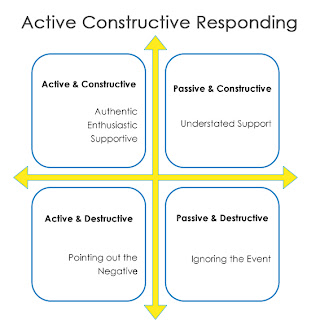Chapter 3: "Flourish"
The Dirty Little Secrets of Drugs and Therapy
"Almost always, the effects are what is technically called "small". Depression is typical. Consider two treatments that are certified by vast literatures to "work": cognitive therapy for depression and selective serotonin reuptake inhibitors. Taking an average over the entire huge literature, for each you get a 65 percent relief rate, accompanied by a placebo effect that ranges from 45 percents to 55 percent....
Every form of psychotherapy I know, every exercise, is a "fighting the mountain" intervention. In other words, these therapies are not self-reinforcing and so the benefits fade over time. In general, talk therapy techniques all share the property of being difficult to do, no fun at all, and difficult to incorporate into your life. In fact, the way we measure how efficacious talk therapies are is by how long they last before they "melt" once treatments ends. Every single drug has exactly the same property: once you stop taking it, you are back to square one, and reoccurrence and relapse are on the rule."
Something is simply not working! What can we do...?
POSITIVE PSYCHOLOGY
"How you celebrate is more predictive of strong relations that how you fight. People we care about often tell us about a victory, a triumph, and less momentous good things that happen to them. How we respond can either build the relationship or undermine it."
4 basic ways of responding and only one that is effective-
ACTIVE AND CONSTRUCTIVE RESPONDING:
DEALING WITH NEGATIVE EMOTIONS:
"Negative emotions and the negative personality traits have very strong biological limits, and the best a clinician can ever do with the cosmetic approach is to get patients to live in the best part of their set range of depression or anxiety or anger. ..one thing that clinical psychology needs to develop in light of the heritable stubbornness of human pathologies is a psychology of "DEALING WITH IT." We need to tell our patients, "Look, the truth is that many days-no matter how successful we are in therapy-you will wake up feeling blue and thinking life is hopeless. Your job is not only to fight these feelings but also to heroically: functioning well even when you are very sad."
The vision of therapy in the future: THE C U R E !!!
1) Patients need to be told that the drugs and therapies are TEMPORARY symptom relievers only, and that they should expect reoccurrence when treatment stops
2) Treatment should not end when suffering is relieved. Patients need to learn the specific skills of positive psychology: how to have more positive emotion, more engagement, more meaning, more accomplishment, and better human relations. Unlike the skills of minimizing misery, these skills are self-sustaining. They likely treat depression and anxiety and they likely help prevent them as well. More important than relieving pathology, these skills are what flourishing is, and they are crucial to everyone's search for well-being










No comments:
Post a Comment